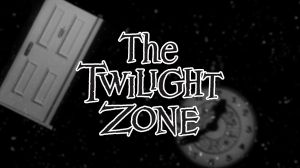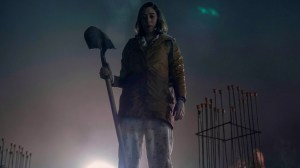After nearly twenty-five years away from our television screens, Animaniacs returned to great fanfare this past Friday, debuting thirteen new episodes on Hulu. The revival of the beloved animated series has given fans quite a lot to take in, both for its new parodies of modern pop culture, and its profound spirit and similarity to the original 1993-1998 run. In order to capture the magic of the first run of the series, Animaniacs brought back a lot of series veterans, from the original cast to its composers, husband and wife duo Julie and Steven Bernstein.
Videos by ComicBook.com
The Bernsteins are no strangers to epic animation scores, with credits that also include Freakazoid!, Pinky and the Brain, and Hysteria. But with their Emmy-winning work on the original Animaniacs run, they crafted a trailblazing sound with the help of a full orchestra, a creative choice that was initially spearheaded by executive producer Steven Spielberg. With the new stretch of Animaniacs episodes, the Bernsteins’ score will surely bring back some nostalgia among fans, while also helping bring the series into a new era.
In celebration of the Animaniacs revival’s debut, ComicBook.com got a chance to chat with the Bernsteins about their work on the new episodes. They also spoke about the challenges of recording a full orchestra remotely amid the COVID-19 pandemic, the multiple generations of musicians working on the revival, and more.
ComicBook.com: What was it like to return to Animaniacs after all of these years? Was it like riding a bike, or were there any moments where you had to revisit your original work?
Julie Bernstein: Riding a bike is a pretty good example.
Steven Bernstein: I think so. Maybe riding a bike where the tires needed to be inflated. It was familiar because we did it for so long.
Julie: Yeah. We didn’t study up. But I mean, this is not to say that it’s an easy thing to do. Or was it easy back then? Every time we sit down with a new blank slate, it’s daunting.
The way of recording music for television has obviously evolved so much since you guys originally did the show. What has it been like to revisit the show but in that new circumstance?
Steven: We need to answer that in two sections, because there was the pre-COVID section where we still were able to record the orchestra in the live studio.
Julie: Although with computers now you’re right, everything has changed since we worked on the last show. Whereas years ago, if anybody besides us wanted to hear the music, they had to come to the recording session, because they were not hearing it until then. And if they wanted changes made, we’d either make them on the spot that day, or we’d make them and then record them on the next session. So these days we are mocking everything up on the computer, and everybody can listen to it beforehand, ask us for any changes, and we do that all before going to the recording session.
Steven: There are fewer surprises this way. I think it’s a double-edged sword. It’s a bit more work for us to mock-up every cue. But at the same time, we get to know if something’s working. So it’s helpful. Computers have changed everything in what we do.
Julie: And without those computers, once the pandemic hit, we would not have been able to do what we’ve been doing, which is we have been recording remotely a live orchestra. And that’s been an incredible, wonderful thing, even though it’s very time consuming and very labor-consuming, and it took us a while to get up to speed.
I was really curious about that aspect, of recording during a pandemic, because it feels like everybody in the entertainment industry has had to establish a new status quo. What is it like to try to capture that full orchestra sound remotely, just from a creative standpoint?
Steven: It’s been really interesting. We just have a slightly diminished group from what we had live, because we’re supplying things like percussion and piano and keyboards. But all the musicians, the winds, the strings, the brass, they’re all acting as soloists, sending us tracks from their home studios. So we have about 30 separate tracks…
Julie: …Plus our six here. And then we have to assemble them and edit them. And that’s a whole huge process, the preparation to get it to them so that they can play. And then ultimately we send back and forth between our engineer, who would have been sitting next to us in the studio. But instead, he’s in his own studio. So we do a lot of texting and emailing tracks back and forth. I’m sure some of the episodes you heard were actually remotely recorded, and I don’t know if you could hear a difference.
The way that animation – and the way that music plays into animation – have evolved over the past couple of decades has been really interesting. Did that influence how you approached the music this time around, in terms of pacing or tone?
Julie: Whatever the picture asks of us, we just go for that. There’s no thought beforehand to make it any one way.
Steven: I think we were hired back to provide a kind of consistency in the sound. We’re there to serve the story and the animation. And hopefully, help the jokes and the gags and provide some emotional background.
Julie: Yeah, I don’t think that we have really changed. We’ve certainly evolved. I mean, in 20 years, hopefully, Steve and I have both evolved and hopefully become better. But who knows?
Steven: Some things have changed. I think we’ve become a little bit cinematic in the scoring aspects. If there are the larger than life kinds of things like chases or chases.
Julie: That’s a new stylistic thing that you might notice in this new Animaniacs. And we do talk to the directors and the producers about what they’re looking for. So some of what they’re looking for is a little different from what we remember. I think for the main part, we’re pretty much writing what we would have written a while back. But we’re also, hopefully, like I said, evolved.
Steven: I think we can’t help but be somewhat changed. Because we have been listening to music, and music to picture since then. And I think even subliminally, we will absorb some of that.
What surprised you the most working on Animaniacs this time around?
Steven: I think how similar they were to the first iteration of the show. I mean, it didn’t seem like any time passed, except for some of the references, obviously. But it’s the same snappy writing. The same incredible vocal performances. The voice acting is top-notch still. I don’t know if we were surprised, but we were hoping so much.
Julie: And the animation is great.
Steven: We were happily surprised at the quality of this new version.
Julie: One’s nervous, just like you probably were. Until you see it, you don’t know — how is it going to be different? And so that was a really, really great, wonderful surprise to see how really good it is.
What has it been like for you both to know that Animaniacs has, at this point, multiple generations of fans? The people who were kids when the original series came out, they might have kids of their own now that they’re going to show these new episodes to.
Steven: That’s exactly right.
Julie: It’s so cool.
Steven: What’s amazing to us, there are actually members of the orchestra that grew up with the series.
Julie: Oh, it’s so cute.
Steven: And they are so excited to be playing in the orchestra of the series that they grew up with.
Julie: The first sessions for the reboot were live. And after the session was over, we had a number of younger people come up to us and say, “This is my dream. I grew up watching the show. I can’t believe I’m playing on it now.” And now with the remote recording, we have a lot of new people that are set up, computer-wise, at home. And they’ve been writing to us and telling us that this is something that they grew up with, and the idea that they could actually be playing on this, is a dream come true. So it’s awesome for us to hear that.
Steven: And we’re excited for the new generations to discover this. I know a lot of the fans from the first show have been saying that they’re excited to introduce their kids to the new series, or the new episodes. And they have been showing the original episodes and the kids are loving it.
Julie: It’s very exciting, very exciting. We love the fact that this is not just a one-time thing that maybe people like for a short period of time. It’s already proven to be something that’s long-lasting. So we’re ecstatic to be able to work on something like that.
I was curious about the mix of the orchestra, and how many people were veterans who had played the first time around, and how many people were younger people who might’ve been fans of the show. So that’s really fascinating of all of that. What was the mix of that like?
Julie: When we first started, we insisted that all of our original members of the Animaniacs orchestra be called, and they were. They were all called. Some of them, unfortunately, were no longer around or not playing anymore. But anybody who was still alive and playing was invited to come back. It was such a family.
Steven: It was pretty large. I would say at least 60/40, old to new.
Julie: Maybe even 70/30. The live orchestra seemed like mostly people that we knew that had played on the original. And it was so exciting. We flew in our xylophone player, our percussionist. He flew in from New York where he’s been living. And then, when it shut down, it presented a new issue, because a lot of players are not set up at home with a studio that can record remotely.
Steven: I think that’s a purview of a lot of the younger players. And so the mix got a little more evened out once we had to start recording remotely. So probably I would say maybe 50/50 at this point.
Julie: Now it is. We’ve done 10 and a half sessions, six-hour sessions remotely. And so these people that weren’t in the original orchestra have now become mainstays in this remote orchestra.
Steven: They’re our new regulars.
What advice do you have for younger people who would love to be in your position, of composing for animation and for movies and TV?
Steven: I would say, study, first of all. Learn the language. Music’s a language, and you need to learn the syntax and grammar.
Julie: But there’s not syntax and grammar specifically for what we’re doing. Watching and listening is important. And then any opportunity that a young person has to write for instruments. I agree it’s important to study and learn the musical vocabulary, but then writing music for specific instruments and hearing those instruments play it back is a really important lesson.
Steven: I also think that listening along with watching, I mean, you have to see how music relates to the story, to the picture. To see what works and just to see what maybe you might’ve done differently. And to make a conscious effort to make that a study. That would give somebody a really huge advantage.
Julie: It’s true. We never had that, but we’ve learned it as we go along. A very important thing is to watch and listen, and see how music either sets up the jokes or lays out. Because that’s a real challenge, to know when to have music and when not to have music. How you enhance the situation or how when to stay out of the way. It’s tricky. So I just think the more you watch, the more you listen. And like I said, I think it’s important to get your friends to play instruments, to play the music that you’ve written, so you can hear what’s possible.
Steven: If you’re intending to write for acoustic instruments. I mean, there’s also the electronics. You don’t need your friends, but you still need to know how things sound, and how they relate to the story and the picture. There’s a lot of work that has to be done. And I think the more work that’s put in ahead of time, the luckier a person can be.
Julie: It’s really hard, wonderful, challenging, exciting work.
Steven: You have to be passionate about it because there is a lot of work and there’s a lot of competition and a lot of passionate people. And so you really have to be devoted to something that you really want to pursue.
Julie: I’d say all those people that are devoted to it and love it, don’t stop. Just do as much as you can. And then being in the right place at the right time with the right goods, the right background, the right preparation. That’s where they’ll find their success.
***
Season one of the Animaniacs revival is now available to stream on Hulu.
This interview has been lightly edited for clarity and length.








